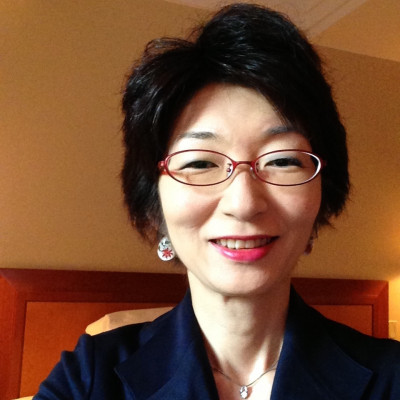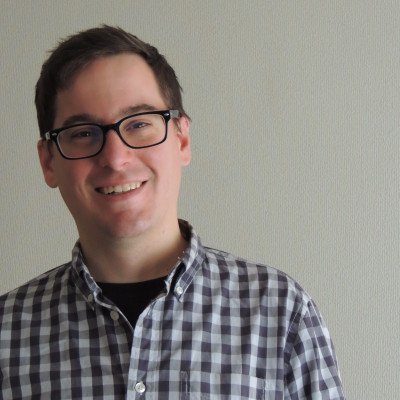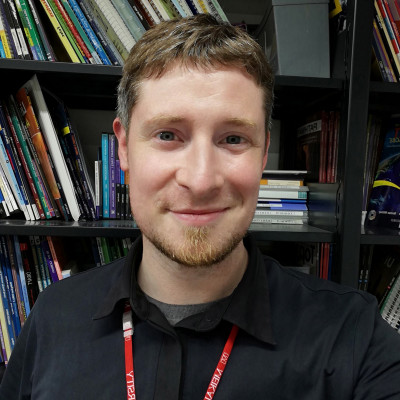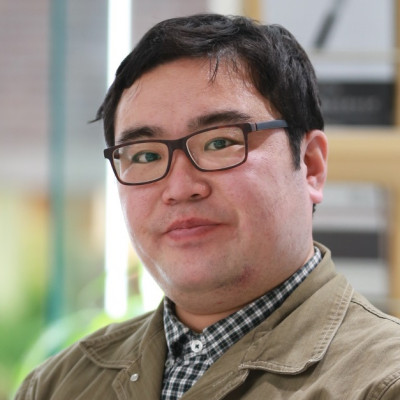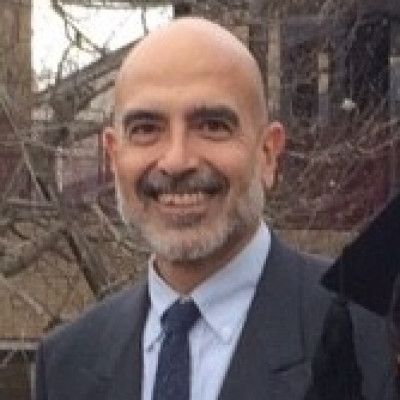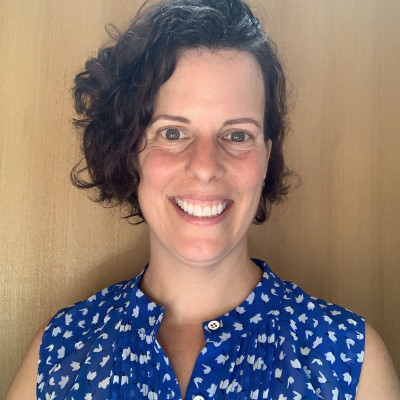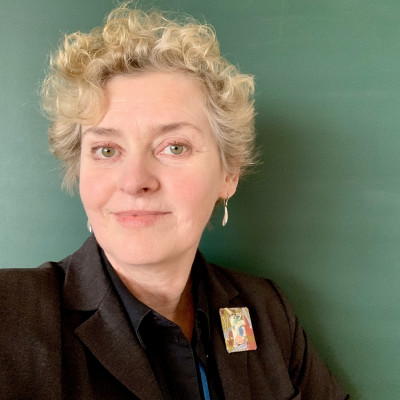Sessions / Interactive poster session
40 Minutes including Q and A
留学準備講座におけるクリティカル・インシデントの指導 #2816
異文化との接点でカルチャー・ショックを感じることは不可避と言われている。その原因に対応するための批判的思考、また問題解決を見出すためにクリティカル・インシデント法が異文化コミュニケーション研修でも取り上げられ、誤解や対立などを描写する有効な方法として位置づけられている。 本発表では、新型コロナウイルスの感染拡大前に留学準備講座(半期の日本語開講科目)を履修した日本人大学生が経験したクリティカル・インシデントの調査結果を明らかにする。クリティカル・インシデントの指導を受けた翌週、受講生は外国人交換留学生との懇親会に参加し、自ら経験したクリティカル・インシデントに関する振り返りを記述した。記述内容をHall (1976) の高文脈/低文脈文化のモデルに沿って分析し、コロナ禍における本講座指導への応用、並びに海外留学を目指す学生に必要な要素も考察する。
Online Inclusion with UDL: A Case Study in Postsecondary EMI #2844
Compared to their peers without disabilities, students with disabilities can experience unique, additional barriers to learning in online learning environments (Rao et al., 2021; UNESCO, 2021). Without knowing the barriers that students may face in online learning, teachers have an ethical responsibility to design and deliver inclusive online lessons, especially considering the likelihood that online instruction will become more commonplace in a post-pandemic world.
Universal Design for Learning (UDL) is “a framework to improve and optimize teaching and learning for all people based on scientific insights into how humans learn” (CAST, 2018) by providing multiple means of engagement, representation, and action and expression. This poster presentation will describe the iterative application of UDL Guidelines to an online English Medium Instruction course at a private university in Tokyo in the 2020 and 2021 academic years. This description will include the initial application of the UDL Guidelines, responses from a student survey on the efficacy of inclusive design choices, and subsequent modifications made to course and lesson delivery for greater inclusivity. Participants will leave with a better understanding of how to apply the UDL Guidelines in their own online teaching.
Rethinking Silence and Participation in the Japanese EFL Classroom #2864
Classroom silence is a common source of conflict between teachers and students in the Japanese English as a foreign language (EFL) context. Within second language acquisition theory (SLA) and EFL literature, and especially within communicative language teaching pedagogies, a heavy emphasis is placed on second language (L2) oral production as an ideal, if not essential participation mode. Furthermore, the majority of work from Western researchers has problematized the silence of Japanese EFL learners, traditionally viewing classroom silence as a serious impediment to L2 acquisition and as evidence of non-participation or lack of ability (e.g. Bao, 2014; King, 2013; Shao & Gao, 2016). As a result, L2 oral production is often become conflated with active participation and L2 gains in Japanese EFL classrooms settings (e.g. Bernales, 2016; Delaney, 2012). This presentation aims to connect sociocultural constructions of silence with SLA phenomena and pedagogical factors to examine why Japanese EFL learners continue to choose silence in the classroom (e.g. Bernales, 2016; Bao, 2014; King, 2013; Nakane, 2007; Yashima et al., 2016.) It reflects on these cultural ways of being, participating, and learning to propose a broader conceptualization of L2 classroom participation that acknowledges and accommodates silent modes of participation and different cultural learning modes.
Are SMART goals a smart way to reduce anxiety and increase motivation? #2875
In Japanese universities, instructors are familiar with the phenomenon of the silent classroom. Issues of low motivation and performance anxiety can lead students to stay quiet instead of taking risks and making mistakes—which are integral parts of foreign language learning—and this reluctance is not conducive to improving one’s L2. Researchers have explored different methods of instruction to cope with the issue of student anxiety. One potential solution is to increase student feelings of self-efficacy by guiding students to set and achieve realistic goals. The concept of SMART Goals (Specific, Measurable, Achievable, Realistic, and Time-based) was introduced to first- and second-year students in five different courses (N=79) at the beginning of their second semester. The five courses included one JSL course, two non-English major EFL courses, and two English major writing courses. A questionnaire targeting feelings of anxiety and adequacy in the foreign language classroom was given to the students before and after developing SMART goals. Drawing on the questionnaire data, the presenters will report on their counterintuitive findings about the relationships between student anxiety, motivation and enjoyment as students refined their personal SMART goals over time.
The role of a Self-Access Learning Center for non-English language majors #2876
The present research explores the role of a Self-Access Learning Center (SALC) at a university in Japan. The SALC is one of the leading facilities in the field in Japan and is categorized as a “social-supportive” facility with an intention to constantly investigate what its users need and whether it is effectively meeting those needs (Mynard, 2019). However, as English is largely displayed in the facility, students majoring in other languages may have perceptions of such a facility that the SALC educators and staff may not be aware of. For example, Chinese major students’ attitudes and motivations for using the SALC might be different from English majors, especially when studying English as a third language. Educators in the SALC will need to explore the experiences of all users of the facility, regardless of their major, and allow for different points of view in order to develop the facility for all language learners. In this presentation, I will examine, firstly, the perception of two Chinese major students towards the SALC, and secondly, what the SALC can offer them, as a place for promoting self-language learning.
Application of social model for neurodivergent students in class #2880
Statistics from the Japan Student Services Organization indicate that the number of neurodivergent students in higher education institutions is rising. Because interpersonal communication is problematic for many neurodivergent students, this increase suggests that language instructors must increasingly foster self-esteem and self-efficacy by teaching effective and productive communication skills. This poster will present the kind of support based on the social model of disability that would be meaningful in communication with neurodivergent students. Making learning easy and accessible for such students is not enough. We must challenge students and polish their strengths. Applying the social model of disability, we can understand how social obstacles hinder participation in society. This model suggests that differentiating the language instructors' communication behavior to reflect students' differences in learning styles can help many neurodivergent students. Using a literature review of instruction in EFL, this theoretical poster aspires to discuss the practical implication for teachers’ classroom communication. Also, it encourages the audience to remember that, in addition to physical accommodation, our linguistic accommodation, even to the point of specific words of instruction, can help students grow.
The critical role of the teacher in the Self-Directed Learning (SDL) class #2914
Teachers and students have pulled through two years of online learning, gaining new information and technological (ICT) skills, studying self-directed learning skills, and demonstrating an adaptability to sudden and unexpected change. When our post-pandemic world finally arrives, how will we have changed? Dewaele and Mercer (2018) examined teacher attitudes and the necessity of a high level of emotional intelligence (EI) and self-efficacy to connect with students. This human connection between teacher and student is critical in all modes of education, face-to-face, online, blended, hybrid, or hyflex. Martin’s (2013) research on student adaptability to uncertainty and novelty is useful in helping teachers guide, advise, coach, challenge, and believe in students. In this presentation, the presenters reflect on various self-directed learning (SDL) courses they have taught in the past two years and re-consider the indispensable role of the teacher in fostering new skills in our students to learn without us. Data from open-ended and multiple-choice questionnaires, interviews, and actual work from first- through third-year students are used in this interpretative evaluation of the teacher's role and influence in the SDL classroom. The presentation will conclude with suggestions for SDL teachers.
Sharing Slices of Life: Weekly Blogging Assignment for First-year University Students #2696
This session will introduce a weblog assignment for students in a university-level academic English class. It is a semester-long, on-going assignment that exists alongside their academic writing projects. The blog assignment is titled “Slice of Life,” and it requires students to publish one blog entry every week that gives readers insight into their everyday life. In addition, every week, each blogger will read the entries published by their peers, and leave relevant comments on at least two of their classmates’ blog entries.
The “slice of life” entry for this assignment can be a short narrative about a segment of their day, a poem depicting a small moment in time, or a collection of photos, videos and/or words describing the everyday experience. The students are encouraged to use the language creatively for communication purposes, with the aim to improve their comfort confidence level in using the language, as well as providing opportunities for using L2 for real communication.
In this poster session, the presenter will explain the details of this assignment, present examples of published student blog entries and comments, share excerpts of student reflections on this semester-long assignment, and answer any questions.
Interdisciplinary Teacher Collaboration for an ESP course: A case study #2957
A post-pandemic world has sparked a drive to reassess meanings of and ways to build connections and relationships in our lives. Specifically in education, teacher collaboration has been encouraged to combat such a task (UNESCO, 2020). Although communities of practice (CoP) for such collective learning itself is not a new phenomenon, more innovative challenges require Landscape of Practice (LoP) where teachers learn through boundary crossing and participation in CoP (Wenger-Trayner, et. al., 2015). Interdisciplinary teacher collaboration (ITC) where an English teacher works with a content teacher towards a shared goal is one way to actualize this LoP. Nevertheless, when to or why we cross such boundaries are not well documented (Lu, 2020). Therefore, this ongoing case study aims to explore ITC’s impact on teachers’ decision making in designing, implementing, and evaluating an elective business-content ESP course for Spring 2022 at a private university in Japan. This study will collect and examine a variety of data related to ITC from email to casual oral chats during December 2021 to July 2022. The findings will show how and when ITC influences teacher’s decision making in designing an ESP course to enhance students’ learning in the post-pandemic world.
Student Perceptions of Peer-review in Blog-style Writing Assignment #2702
Much has been written about the effects of peer-review in the language classroom (Bransford et al, 2004; Patri, 2002; Liu, N. & Carless, D., 2006). Peer-review specifically in writing courses has been reported as beneficial (Banegas, D. L., et al 2019; Rollinson, P. 2005; Tahir, I. H., 2012; Yu, 2019) because it helps students to reflect, edit, and correct. This presentation explores student perceptions of peer-review in a college English writing class for lower-intermediate students in Japan. Although the students are all taking English communication courses, some students’ writing proficiency is low. Most research on peer review is done in higher level writing or academic writing courses; therefore, the presenter aimed to find out how this particular class would respond to peer-review. Students produced blog-style writing texts, and their work was posted on Google Classroom. Students were then asked to evaluate each other’s work. In a post-project survey, students indicated a positive attitude towards peer-review, and that reading other students’ blog posts helped them reflect on their own writing. Students also reported that knowing their work would be shown to others urged them to work harder and produce better work than in other assignments. These results match with previous studies.
Living with ADHD: What this means for teachers and students #2704
Attention Deficit and Hyperactivity Disorder (ADHD) is a complex and misunderstood condition. Despite its reputation as a disorder that simply affects the ability to focus and contributes to hyperactive behavior, ADHD presents in different ways for different people. What may present as a challenge for one person may in fact be the strength of another and vice versa. In the teaching context, the classroom (either physical or virtual) may create a wide variety of situations, both hurdles and opportunities, for which teachers and students who have ADHD have to manage. This poster will illustrate what it means to live with ADHD. The presenters will narrate their experiences as language teachers both pre- and mid-pandemic and discuss how ADHD shapes their teaching practice. They will also describe how they structure their classrooms to support students who may be struggling and how they craft a space for students with ADHD to make use of their skills to experience success. This poster will be of particular interest to teachers of students with diagnosed or undiagnosed ADHD who may be struggling to apply learning strategies that were effective in the physical classroom to virtual study.
Learner Profiling to Support Student-Centered Learning Environments #2972
Advocates for student-centered learning environments (Hoidn, 2017; Hoidn & Klemenčič, 2020) have suggested that access to detailed information about students’ backgrounds and beliefs can help teachers prepare more individualized and appropriate lessons. For language educators at Japanese universities, provisions of student information are often limited to simple personal information and perhaps a test score. The action research project presented here set out to develop a system that could 1) collect both quantitative and qualitative information about learner backgrounds and beliefs, 2) process and report data to teachers in a timely manner, and 3) provide learners with the opportunity to contribute to the construction of their own learning environments through the completion of reflective tasks. To accomplish these goals, a learner profiling system was created using Microsoft Forms and Excel. Teachers were provided with reports of their classes within 24 hours, and students were able to use their submissions as benchmarks during reflective tasks at the end of the course. Alongside previously published and current research findings, the instruments are presented in this session as freely available resources for individual language educators and/or program directors looking to achieve similar agendas in their own teaching contexts.
Exploring Project-Based Learning (PBL): Understandings, puzzles, practices #2974
This presentation focuses on how students and teachers at a university in Japan understand Project-Based Learning (PBL), what practices they see as central to PBL, and what puzzles come up for them as they do PBL. The background is a curriculum reform whereby an existing first- and second-year university research and writing programme is transitioning in 2022 and 2023 into PBL courses. In the new curriculum students will do at least three projects in one year where they identify and choose a problem in society that interests them, plan and do research, journal, and create a written product for each project - often using digital technology - to be published in a public forum beyond their immediate class. While students will, as now, do online research in each project, the new PBL courses will have a clear emphasis on students talking in each project with “close others” (other students, family members, people in local communities or local networks that students are part of). Other important differences and challenges will emerge as teachers and students experiment with PBL in 2022. From interviews, discussions, and written reflections, this poster presentation explores key learner development puzzles in teachers’ and students’ diverse PBL understandings and practices.
Enhanced Feedback for Oral Presentations Using Google Workspace #3302
This poster will discuss my experiences fostering a reflective learning environment via (A) the delivery of near-immediate teacher and peer feedback and (B) subsequently requiring students to submit reflections about their learning experiences using cloud computing (Google Workspace). Certain pedagogical tasks limit teachers’ abilities to provide immediate feedback, such as when students are giving presentations. In this poster, I will explain how cloud computing can help to overcome such challenges, notably by videoing students and incorporating teacher feedback into the video such that students are receiving critical feedback about their language production and also their presentation skills. Thereafter, based on students’ comments and their reflective learning assignments, this poster will discuss (1) whether students are able to understand the corrective feedback provided, and (2) whether they subsequently demonstrate correct knowledge of the linguistic form or presentational behaviour towards which the feedback was targeted (uptake).
Bringing the World into English Classrooms #3303
Rita Mae Brown said, “Language is the road map of a culture. In this poster presentation, we will explain our approach to developing a classroom where students learn both the target language as well as about the target culture through three main programs: The first program, Local World in English Class, is a program designed to teach students about other cultures in English by using sports and cuisine. During the course of this program, students learn both the target language and also come to understand the relationship of language and culture. The second program, Global Citizen Education, aims to deepen students’ cultural awareness as well as to introduce global issues and to aid students in developing global competencies that allow them to subsequently participate in dialog about issues such as racism and discrimination, the role of NGO'S, and public diplomacy. The third program, English Guided Tour, allows students to study historical locations and then practically apply knowledge learned in English in order to function as a guide for international visitors to Korea.
